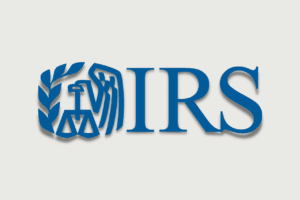Federal / Agency News

Revised M2M Debt Subordination-Qualified Nonprofit Purchasers Notice
HUD released a draft notice on ‘‘Guidelines for Certain HUD Approvals Regarding Properties Encumbered by HUD-Held Mark-to-Market Program Debt and Portfolio Reengineering Demonstration Program Debt.”

NH&RA Joins CHCDF Letter to Congressional Appropriators
NH&RA joined the Campaign for Housing and Community Development Funding (CHCDF) letter to House and Senate Appropriations Subcommittees on Transportation, Housing and Urban Development (THUD) thanking the House for their work securing increased funding and meaningful protections for fiscal year (FY) 2021 and urging the Senate to do the same.

HUD Publishes FY2020 CNI Grant Notice, Calls for Applications
HUD recently published a Notice of Funding Availability (NOFA) for the FY2020 Choice Neighborhoods Implementation Grant Program. Applicants may request up to $30 million for target housing projects with less than 250 public housing/assisted units or up to $35 million for target housing projects with 250 or more public housing/assisted units.

IRS Guidance on BEAT
The Internal Revenue Service (IRS) issued final regulations providing additional guidance on the base erosion and anti-abuse tax (BEAT). The final regulations provide detailed guidance regarding how to compute certain BEAT calculations for groups of related taxpayers.

CDC Issues Nationwide Eviction Moratorium
In response to President Trump’s Executive Order on evictions, the Centers for Disease Control and Prevention (CDC) released an agency order immediately implementing an eviction moratorium.

Administration Touts Investments Created by Opportunity Zones
Opportunity Zones (OZ) led to Qualified Opportunity Funds raising $75 billion in capital by the end of 2019, according to a Council of Economic Advisers (CEA) report released on August 24.

HUD Issues FY 20201 Fair Market Rents
HUD published a notice of fiscal year (FY) 2021 fair market rents (FMRs) for the Housing Choice Voucher program, Moderate Rehabilitation Single Room Occupancy program and other HUD programs. Comments on the notice are due September 30 and the FMRs will be effective October 1.

IRS Extends Grandfathering for the One-Year Historic Tax Credit
The Tax Cut and Jobs Act of 2017 made significant changes to the Historic Tax Credit, turning it from a one-year credit with a five-year compliance period to a five-year credit taken ratably. Transition rules were set in place that permitted some projects currently underway to be grandfathered in under the former one-year credit. That grandfathering rule had an end date in June 2020. Now, in light of the COVID-19 pandemic, the IRS has provided an extension of the grandfathering rule, into 2021.

New Executive Orders on Evictions, Foreclosures, Payroll Tax and Unemployment Compensation
Over the weekend, President Trump issued three COVID-19 related executive orders (EO) on “Deferring Payroll Tax Obligations,” “Providing Assistance to Renters and Homeowners” and “Other Needs Assistance Program.” The presidential action comes as Congressional and White House negotiations over the next COVID-19 aid package have stalled.

HUD to Resume REAC Inspections in October
HUD announced that it will begin Real Estate Assessment Center (REAC) inspections of HUD multifamily and public housing properties and units later this year. REAC will prioritize inspections in states and localities based on the latest COVID-19 data from Johns Hopkins University and health risk scoring methodology from the Harvard Global Health Institute.

HUD Updates Multifamily Q&A Document
On July 31, HUD issued its first update of its Q&A for Multifamily Housing programs since May 21. HUD’s Q&A document relays HUD’s guidance on operational and procedural questions related to the safe administration of HUD-assisted programs during COVID-19.

House Passes FY 2021 HUD Appropriations
Last week the House passed H.R. 7617, which provides fiscal year (FY) 2021 funding for six appropriations subcommittees, including HUD. The House bill is expected to provide adequate appropriations to renew existing Housing Choice Vouchers and Project-Based Rental Assistance, and provides increases for most programs, including the Community Development Block Grants, HOME Investment Partnerships Program (HOME), Section 202 and Section 811, which would also receive additional funding through emergency infrastructure investments. The bill also contains two amendments that would block the Trump Administration’s recent regulatory action on the Disparate Impact Rule and the Affirmatively Furthering Fair Housing (AFFH).